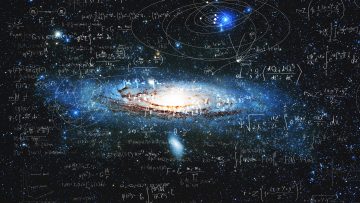It’s going to a busy week for comics fans. Zack Snyder’s Justice League launches on Thursday on
The events of WandaVision happen just three weeks after Endgame and the show does a great job fixing one of the things about Endgame that I did not appreciate. The series begins to show us what it was like for half of the world to come back to life. The problem with Endgame is that the focus is only on the superheroes. With so many Avengers, who can blame Marvel for not really showing the audience what happened with regular mortals when Hulk snapped his fingers? Also, the film’s pace at that point would have made it almost impossible to cover the general public.
Still, Endgame does offer this disconnect between regular people and superheroes. Even the ending far more upbeat than it might be in reality. If WandaVision showed us what the blip felt for non-superheroes involved in the mission, Falcon should give us an in-depth look at the world after people came to grip with this new reality.
In an interview with Collider, director Kari Skogland and head writer Malcolm Spellman explained The Falcon and the Winter Soldier timeline and the choices made for the plot. Unlike WandaVision, the next TV show is set further down the road from Endgame. The action takes place at least 6 months after the Avengers beat Thanos, so the show precedes Far From Home.
Skogland said that specific timeline was “absolutely critical” to the show:
Everything narratively was informed by that event for us. It meant that we’re just past the shock of it. We’re just past the joy of it — because we’re imagining that there would be a lot of joy, in people returning. Now we’re into the reality of it, which is complicated.
She teased that we’ll get to experience the inherent darkness that comes with an event of that magnitude. Having half of the population return to life after five years is something that will cause plenty of problems:
With half the population Blipped away, you’ve got different economic circumstances, different border circumstances. Different countries were cooperative, that weren’t before. Neighbors are cooperating, who weren’t necessarily getting along before. People moved into houses that they didn’t own before. Everything changed. Now we’re into that moment. We’re past the surprise of it and now we’re into the realities of it. I think that makes for a very different place in the story, because we can get not only grounded about it, but we can drill into how people respond to that. Some of it’s good and some of it’s not so good.
This timeline was part of the original pitch for The Falcon and the Winter Soldier, Spellman added:
Part of it was just about creating an energy that felt modern and timely. When we started this thing, the blip felt like something that could be harnessed in a way that all the fans would dig it and it would make this series feel relevant.
Part of the mission statement for this series was that we create heroes of the moment who can lead us into the future. To do that, they have to be dealing with issues that regular people would understand. And I think anyone who’s been living through this pandemic can understand how the people in the MCU feel about a global problem where half the population has just reappeared.
The thing about a global problem is it can unite you or divide you. We see that push-pull happening in the series. It defines every episode of the series
The Falcon and the Winter Soldier
debuts on Disney+ early Friday morning.








